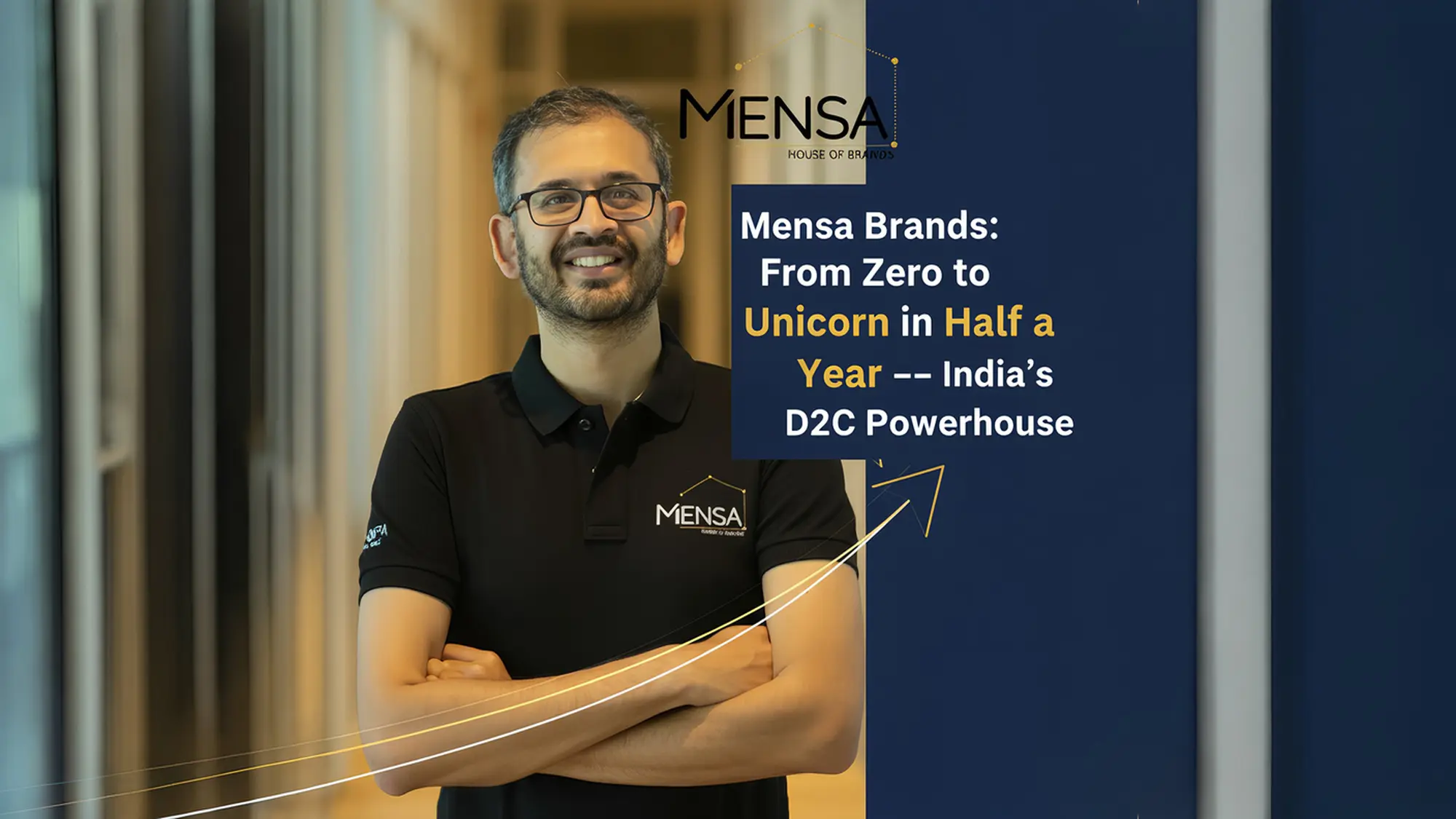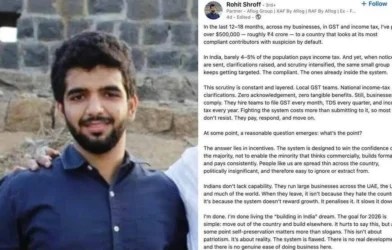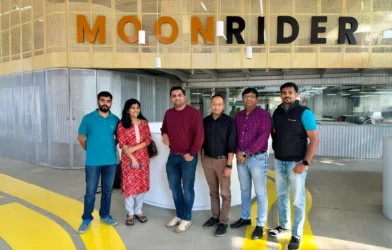Author: Aarya Shah | EQMint
Company History
Mensa Brands was founded in May 2021 with a bold ambition: to build and scale digitally native consumer brands in India and globally. In November 2021, just six months after its founding, Mensa brands raised US$135 million in a Series B round and crossed the US$1 billion valuation threshold — becoming the fastest-ever unicorn in India at the time.
By late 2021, the company had raised over US$300 million in equity and debt. It operates as a “roll-up” or aggregator of brands—acquiring, nurturing, and scaling consumer product companies (especially in D2C) under a shared operational and technology infrastructure.
Over time, Mensa brands has launched or acquired over 20 online-first brands spanning categories such as apparel, beauty, personal care, and home goods. The firm has also begun repositioning its corporate domicile back to India from Singapore, in a process of “reverse flipping.” Inc42
Founders
The driving force behind Mensa brands is Ananth Narayanan, who serves as founder & CEO. Before founding Mensa, Narayanan was the CEO of Myntra, a senior executive at Flipkart, and earlier had experience at Medlife.
Mensa brands has also drawn backing from influential angels and venture funds. Angel investors include Mukesh Bansal (cult.fit) and Kunal Shah (Cred), among others.Institutional investors backing Mensa include Tiger Global Management, Falcon Edge Capital, Accel, Norwest Venture Partners, and others.
Business Model
Mensa’s business model centers on aggregating and scaling direct-to-consumer (D2C) brands under a shared infrastructure. Here are its key elements:
- Roll-up / aggregator model: Mensa acquires or partners with promising existing D2C brands, brings them under its operating umbrella, and uses centralized capabilities (marketing, operations, supply chain, analytics) to help them scale faster.
- Shared services & tech backbone: Rather than each brand operating in isolation, Mensa provides shared support functions — e.g., growth marketing, logistics, inventory management, data analytics, working capital — which allow economies of scale.
- Global ambitions: While many of Mensa’s brands focus on the Indian market, the company aims to build brands for global consumers, exporting or launching in overseas geographies. Around 30% of Mensa’s revenue is reportedly from outside India.
- Category diversity: Mensa’s portfolio spans apparel, home goods, beauty, personal care — sectors with high margins and sizable consumer demand.
- Potential monetization levers: Besides direct brand sales, Mensa could monetize via licensing, platform services to third-party brands, or subscription/loyalty models for its consumer brands. Some reports mention Mensa planning to open its tech stack to other D2C brands.
One notable strategic evolution: Mensa brands is increasingly investing in technology and leveraging its backend to serve not just its own brands but external ones too.
Current Competitors
In the “brand roll-up / D2C aggregator” space in India and globally, Mensa brands faces several competitors and analogous models. Some key ones:
- GlobalBees: A major Indian “house of brands” / roll-up player, similar to Mensa’s model; GlobalBees acquires and scales online-first brands across categories.
- Thrasio-type players: Globally, companies like Thrasio (USA) and BrightDrop (regionally) that acquire Amazon / D2C brands are analogous to Mensa’s model.
- Large consumer goods or conglomerates: Unilever, P&G, L’Oréal, and others — especially their in-house brand incubations — may compete in overlapping consumer categories.
- Standalone D2C challenger brands: Some brands elect to stay independent but aggressively scale — e.g., in beauty, wellness, home — may compete for consumer mindshare, margin, distribution.
- Platforms / marketplaces offering D2C enablement: Companies providing tech, supply chain, or marketing infrastructure to small D2C businesses could overlap in services.
However, Mensa’s aggressive aggregator approach gives it scale advantages that may buffer it against many smaller competitors.
References
- TechCrunch – Mensa becomes unicorn in just six months
- YourStory – Mensa Brands opening up its tech stack to D2C players
- Marketfeed – How Mensa Brands became India’s fastest unicorn
Disclaimer: This article is based on information available from public sources. It has not been reported by EQMint journalists. EQMint has compiled and presented the content for informational purposes only and does not guarantee its accuracy or completeness. Readers are advised to verify details independently before relying on them.









